Summer Literacy Institute | Sessions
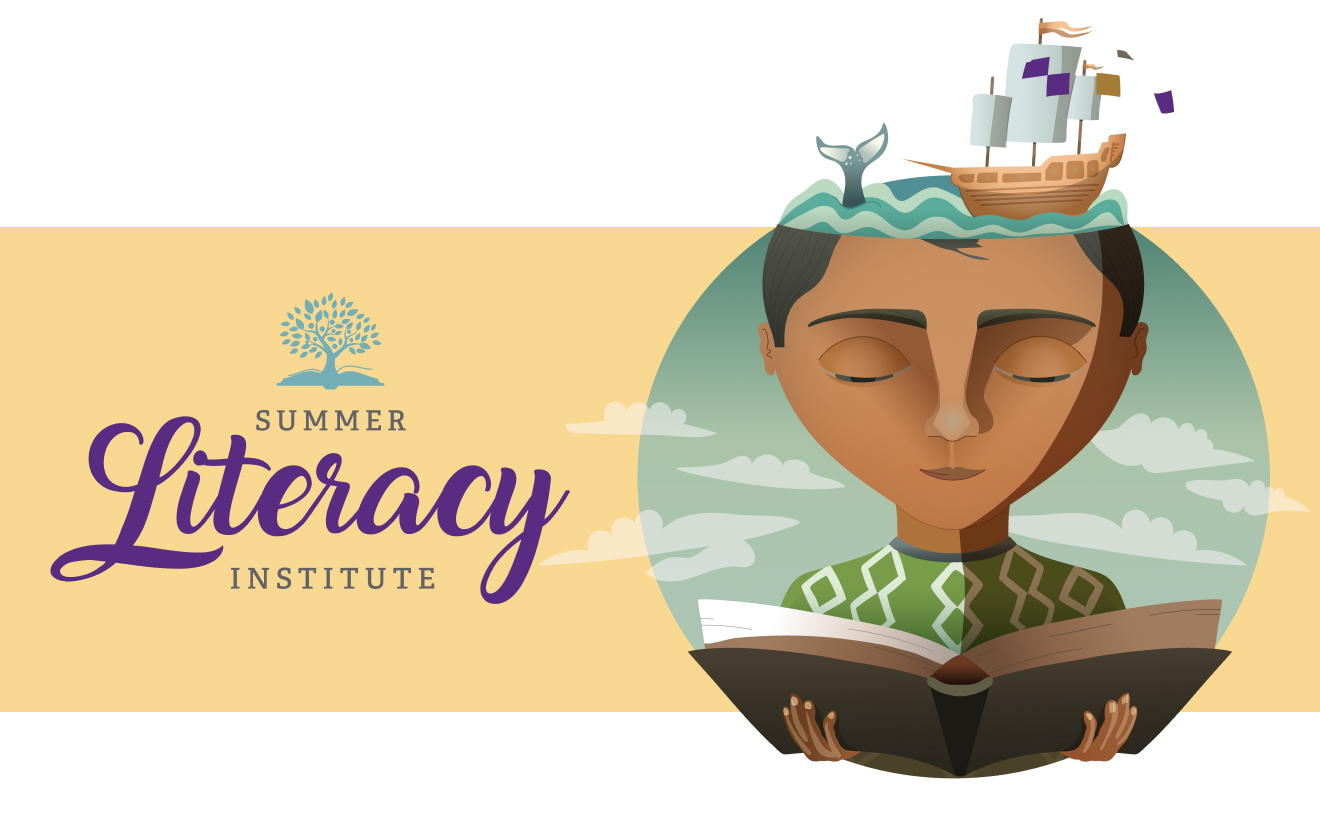
Embracing Justice & Joy
May 28 – 30, 2025
Presented by TCU College of Education and Fort Worth Independent School District.
| Room | Session Details |
| Shaddock Auditorium | Dr. Jonda McNair – Embracing Justice and Joy with Picturebooks |
| 1205 | Navigating Internalization and Differentiation: Ensuring Success for Every Learner
in Elementary Literacy Audience: Elementary FWISD: HQIM Holly Nartz and Kimberly Childs Join us for an engaging and insightful session designed to empower elementary teachers with the tools and strategies needed to internalize and effectively implement lessons that reach all students. We will delve into differentiation strategies within Amplify and explore how to integrate them intentionally into your teaching practices. Participants will work side-by-side with the instructor to internalize a lesson from their grade level, gaining a deep understanding of strategies for differentiation and the new internalization approach. This method will ensure that all learners' diverse skills and needs are met, fostering an inclusive and joyful learning environment for every student. |
| 1208 | Using High Quality Instructional Materials to Accelerate Learning for All Students High Quality Instructional Materials Tracey Weinstein, Deans for Impact In this session participants will build a foundational understanding of what high-quality instructional materials (HQIM) are and explore the relationship between HQIM and instructional decision-making as a lever for accelerating learning for all students in the literacy classroom. |
| 1217 | Rooted in Reading: Research-Based Instructional Strategies (RBIS) That Bridge Math
and Literacy Audience: Elementary & Secondary FWISD: Research-Based Instructional Strategies Luz Ruiz & Kimberly Axtell This session explores how Research-Based Instructional Strategies (RBIS) can transform the math classroom into a space where literacy thrives. Participants will examine how reading comprehension, vocabulary development, and discourse strategies support mathematical thinking and problem-solving. Through interactive examples and literary connections, attendees will discover how to honor both the precision of mathematics and the depth of language, making math more accessible and meaningful for all learners. |
| 1307 | The Joy of Promoting Literacy While Honoring Social Studies Audience: Elementary FWISD: HQIM Rafael Blanco Join us for an engaging and interactive professional development session. This hands-on workshop will bring joy to teachers by enhancing their literacy skills and using social studies content to create digital assignments through myON. (Please bring your electronic devices) |
| 1308 | Launch into Literacy: Exploring Justice and Joy Through Rocket Science Audience:
Elementary & Secondary FWISD: HQIM Rocco Williams What do rockets, reading, and re-entry have in common? Join us as we explore how the awe-inspiring phenomenon of a SpaceX rocket landing back on Earth can ignite both scientific wonder and literacy-rich instruction in the classroom. In this interactive session, educators will learn how to integrate reading, writing, and critical thinking strategies into their science lessons-anchored in real-world phenomena. Participants will engage with texts, video clips, and discourse routines that promote equity, access, and joy for all learners. |
| 1309 | Empowering Learner Voices: Facilitating Academic Oral Language Development in Every
Lesson Audience: Elementary & Dual Language FWISD: Reading Academy Juanita Esparza & Rose Moreno Strong oral language skills are the foundation of literacy and academic achievement, yet they are often overlooked in daily instruction. This dynamic one-hour session explores how educators can intentionally foster oral language development within the Gradual Release of Responsibility (GRR) framework‚ I Do, We Do, You Do. Participants will learn practical strategies for embedding structured speaking and listening opportunities throughout each phase of the model, from teacher modeling to collaborative practice and independent application. |
| 2203 | Navigating nonfiction/informational text: Supporting students' comprehension and addressing
standards Children's Literature Jennifer Smith Join us in this session as we explore methods to support students' comprehension and application of nonfiction/informational text. We will focus on the standards for ELA such as central idea, supporting evidence, and using graphics to gain information. Participants will also learn about recent award-winning nonfiction literature that can be used to supplement content area TEKS and inspire literacy through an interdisciplinary approach. |
| 2506 | Fostering Justice and Joy in Literacy: Engaging Students with Discovery Education's
SOS Strategies Audience: Elementary & Secondary FWISD: HQIM Monique Ervin & Hollie Gutierrez In an increasingly diverse classroom environment, fostering equity and inclusivity is essential for inspiring a love of literacy in every student. Join us for an engaging session using Discovery Education's Spotlight on Strategies (SOS). In this interactive session, K-12 educators will explore engaging, research-based strategies that promote student voice, critical thinking, and meaningful connections to texts. Learn how to integrate these dynamic, easy-to-implement techniques to create equitable and joyful learning experiences that inspire all students to read, write, and think deeply. |
| Room | Session Details |
| 1205 |
Feature Session | Dr. Jonda McNair - Exploring Endpapers in Picturebooks 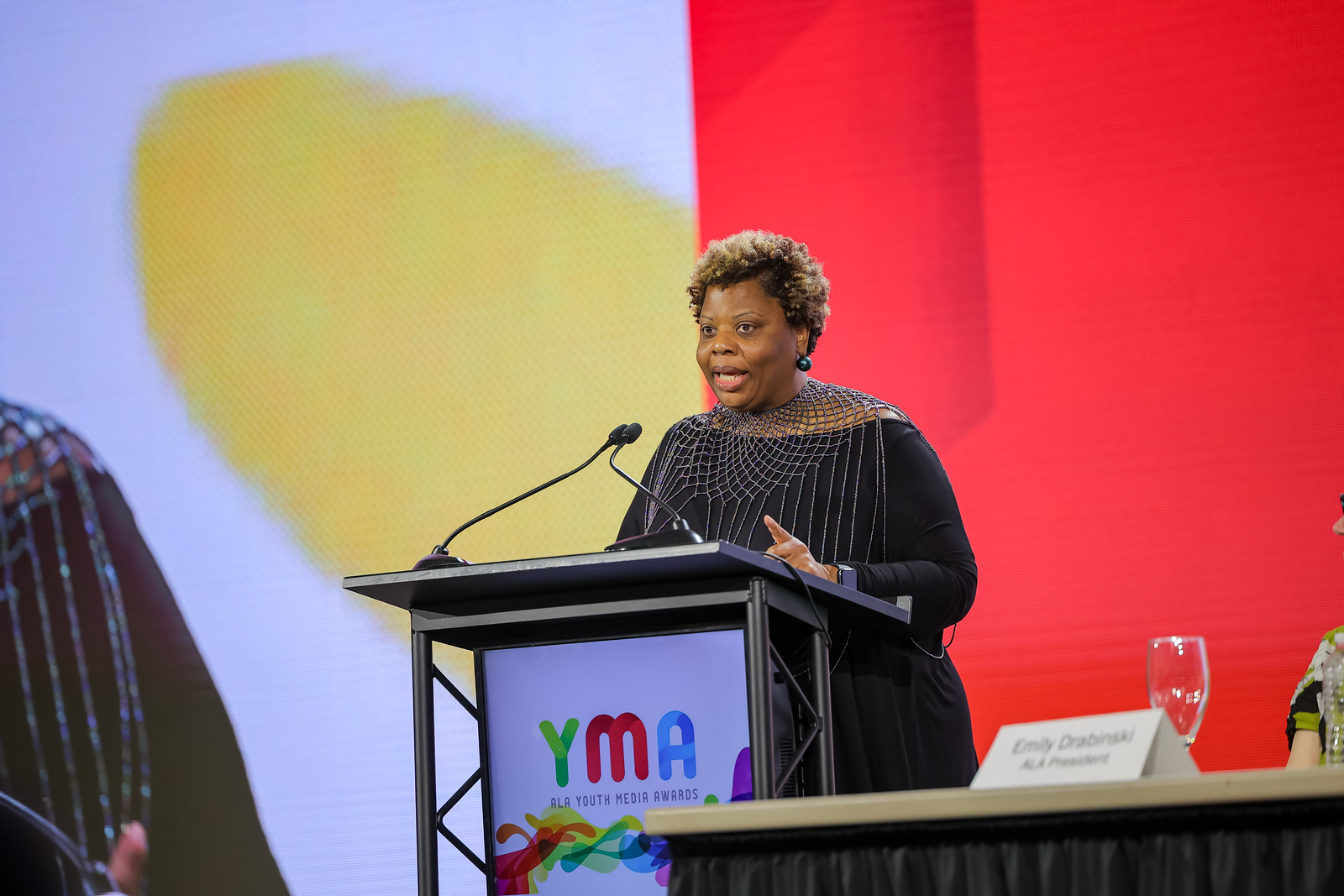
Dr. Jonda C. McNair is the Charlotte S. Huck Endowed Professor of Children’s Literature. She specializes in literature intended for youth with an emphasis on books written by and about African Americans. She is a past chair of the Coretta Scott King Book Awards Committee and was a member of the 2019 Randolph Caldecott Award Selection Committee. Dr. McNair served as chair of the 2021 John Newbery Award Selection Committee and is currently Immediate Past President of the Association for Library Service to Children. She is a former coeditor of the Journal of Children’s Literature and Language Arts, the journal of the Elementary Section of the National Council of Teachers of English. Her work has appeared in journals such as Review of Educational Research, The Reading Teacher, Language Arts, Young Children, The Journal of Negro Education, and Children's Literature in Education. Dr. McNair is a former elementary school teacher of students in grades K-2. |
| 1208 | Using High Quality Instructional Materials to Accelerate Learning for All Students High Quality Instructional Materials Tracey Weinstein, Deans for Impact In this session participants will build a foundational understanding of what high-quality instructional materials (HQIM) are and explore the relationship between HQIM and instructional decision-making as a lever for accelerating learning for all students in the literacy classroom. |
| 1307 | Embracing Justice and Joy: Combining The Art of Story Telling & Examining History
Through Contemporary Art and Visual Literacy FWISD: VPA Ebony Johnson In this session, 6th-12th grade teachers will engage in daily O.A.T.H. (Observing Art Throughout History) to engage in Studio Thinking Strategies that can strengthen student expression/discussion, and engagement surrounding thematic works of art. These strategies are used in the art classroom to formulate criticism about works of art and develop Visual Literacy backed by visual evidence. Teachers will leave with simple activities that can strengthen students' opinions and interpretations of content based on evidence observed. |
| 1308 | "He was brave": Supporting Social and Emotional Learning and Inferential Comprehension
with Picture Books Comprehension Robin Griffith Children's literature plays a vital role in fostering young children's social and emotional learning, particularly in enhancing their emotional intelligence. This sessioin highlights how reading aloud can help young children identify, name, and recognize emotions displayed by characters, thereby boosting their inferential comprehension. |
| 1309 |
Fast, Efficient, Smart, and Slightly Misguided: AI as an Instructional Assistant in
the Literacy Classroom Participants will be introduced to practical frameworks for analyzing AI-generated content and learn how to craft effective prompts that make these tools more useful and aligned with their instructional goals. We'll also explore applications of AI-powered tools, including creating leveled texts, offering personalized writing support, and developing engaging instructional materials. This session will discuss the affordances and the limitations of using AI-generated content, equipping educators with the insight and strategies they need to use these tools thoughtfully, creatively, and ethically. |
| 2506 |
Embracing Joy in Spanish-Language Learning: Cultivating Lifelong Language Learners
(Session en espanol) |
| Room | Session Details |
| 1208 | Teachers as Decision-Makers: Using lesson internalization to Make Instructional Decisions Science of Reading Robin Griffith Teachers make thousands of instructional decisions every day. Do you ever wonder if you are making the most effective ones? In this session, we will explore a framework to guide your teaching decisions in literacy. We will practice lesson internalization using the Amplify curriculum. |
| 1217 | The Science of Reading Comprehension: Approaches to Enhance Reading Comprehension Special Ed-Reading Intervention Endia Lindo Reading comprehension requires the coordination of complex processes to ensure accurate information is extracted from the text in an effective and efficient manner. This session will walk participants through cognitive principles and evidence-based strategies to support students' comprehension. |
| 1308 | Writing Instruction in a Postplagiarism World FWISD: AI Stefanie Garcia Stacy Manross In the evolving landscape of education, the rise of hybrid-writing‚ blending human creativity with artificial intelligence‚ challenges traditional notions of plagiarism and authorship. This session, 'Writing Instruction in the Postplagiarism World,' invites educators to rethink the definition of plagiarism and explore the opportunities AI offers for enhancing writing instruction. Participants will delve into strategies for integrating AI tools to foster collaboration, creativity, and critical thinking in the classroom, moving beyond a mindset of resistance to one of innovation. |
| 2203 | Selecting and using children's literature: Resources for the busy teacher Literature Jennifer Smith Do you find yourself searching for great books to use in the classroom as read alouds, as teaching tools, as supplements to the curriculum, and as options for independent reading? Are you unsure how to use these books effectively once you access them? This session will focus on providing resources for teachers to address these questions and notable award lists; student choice book awards; cross-curricular activities; and online sites with author videos, discussion questions, and engagement ideas. Join us for an interactive session designed to support your use of quality children's literature in the classroom! |
| 2506 |
Integrating ELAR and Social Studies: Strengthening Vocabulary and Background Knowledge
with Visuals The session will feature informational texts such as award-winning picture books about historical people and events. You will also be invited to consider practical ways to integrate English Language Arts and Reading with social studies using existing curriculum materials. There will be a drawing for free social studies-themed books! |
| Room | Session Details |
| Shaddock Auditorium |
Keynote Presentation | Carole Boston Weatherford & Jeremy Boston Weatherford – Rap
it Up! 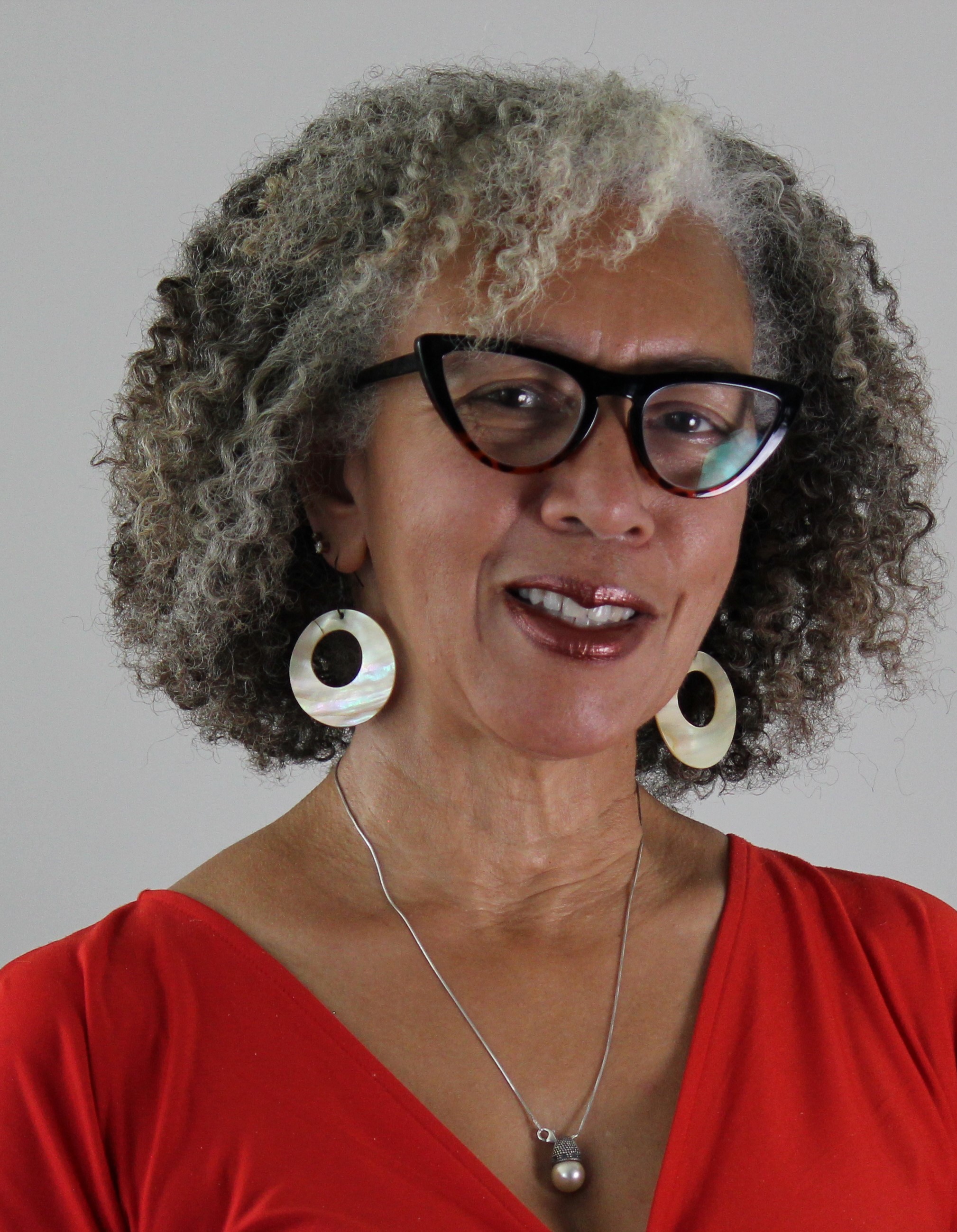
The daughter of a printer, Carole Boston Weatherford was practically born with ink in her blood. She began writing at age 6 and soon after saw her poems in print. Her 80-plus books have garnered 2 NAACP Image Awards and 18 American Library Association Youth Media Awards, including a Newbery Honor, Coretta Scott King Award and 4 Caldecott Honors. Her career achievements have been recognized with the ALA Children’s Literature Legacy Award, the North Carolina Award for Literature, and the Nonfiction Award from the Children’s Book Guild. The 2026-2026 Young People’s Poet Laureate and a retired HBCU professor, she lives in Baltimore. 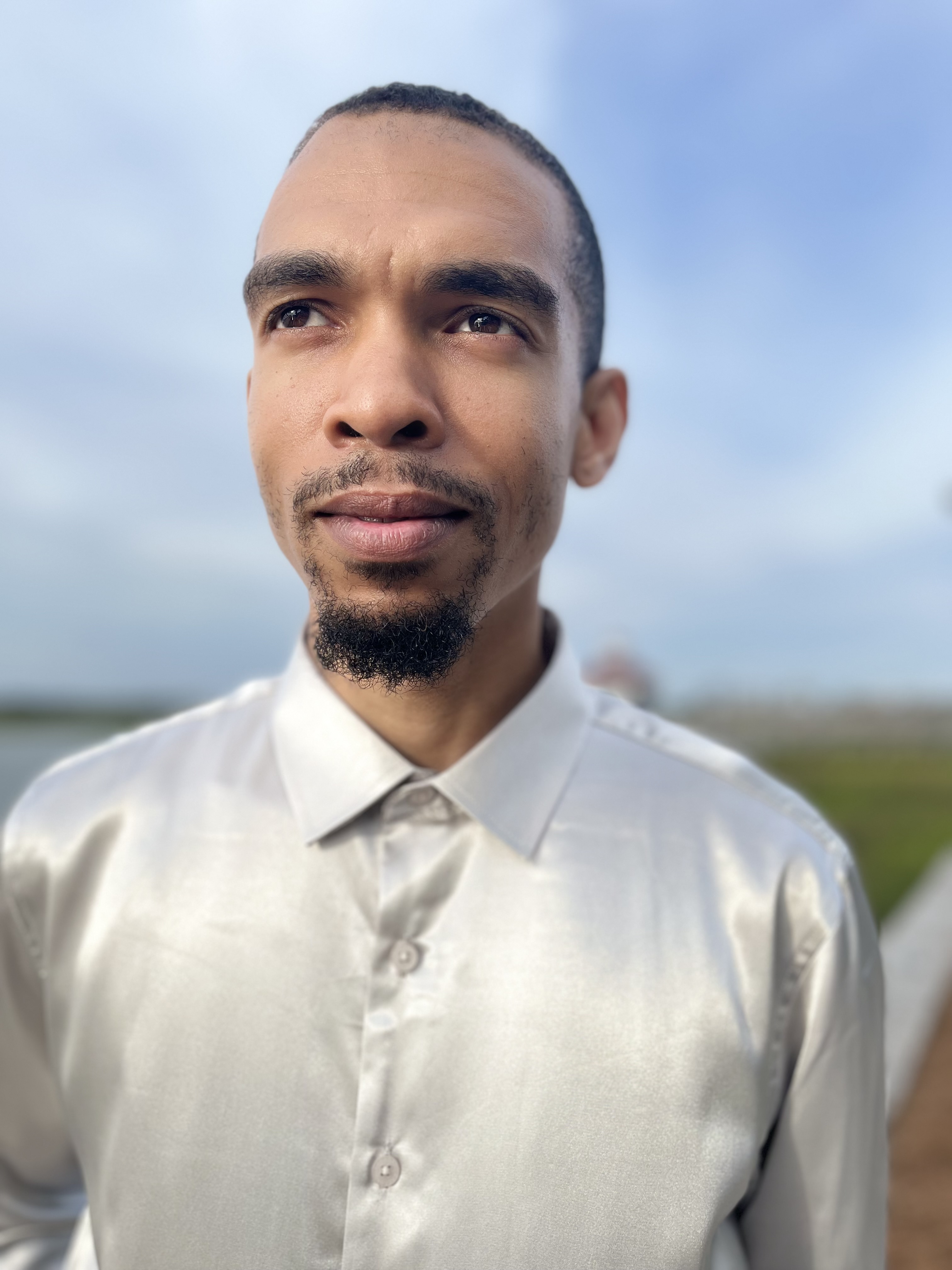
|
| 1205 | Empowering Learner Voices: Facilitating Academic Oral Language Development in Every
Lesson Audience: Elementary & Dual Language FWISD: Reading Academy Juanita Esparza & Rose Moreno Strong oral language skills are the foundation of literacy and academic achievement, yet they are often overlooked in daily instruction. This dynamic one-hour session explores how educators can intentionally foster oral language development within the Gradual Release of Responsibility (GRR) framework‚ I Do, We Do, You Do. Participants will learn practical strategies for embedding structured speaking and listening opportunities throughout each phase of the model, from teacher modeling to collaborative practice and independent application. |
| 1208 | Literacy Meets Technology: Boosting Engagement with Learning.com Audience: Elementary FWISD: HQIM Sara Reed Looking to energize your literacy block while building essential tech skills? In this session, elementary teachers will discover how to use Learning.com to integrate technology seamlessly into literacy instruction while supporting the state technology standards. You'll explore the standards' key strands, learn how to navigate the platform, and locate lessons aligned to your curriculum standards. Walk away with practical strategies and ready-to-use resources that make technology integration simple, meaningful, and fun for students. |
| 1217 | The Joy of Promoting Literacy While Honoring Social Studies Audience: Elementary FWISD: HQIM Rafael Blanco Join us for an engaging and interactive professional development session. This hands-on workshop will bring joy to teachers by enhancing their literacy skills and using social studies content to create digital assignments through myON. (Please bring your electronic devices) |
| 1307 | Embracing Justice and Joy: Cultivating the Writer's Voice FWISD: HQIM Airam Ruiz This session elevates the role of writing as an equalizer of ideas and perspectives that uphold our participation in society. The attendees will examine research-based resources that serve as a platform to design academic, goal-driven writing lessons while empowering every scholar's voice. |
| 1308 | Launch into Literacy: Exploring Justice and Joy Through Rocket Science Audience:
Elementary & Secondary FWISD: HQIM Rocco Williams What do rockets, reading, and re-entry have in common? Join us as we explore how the awe-inspiring phenomenon of a SpaceX rocket landing back on Earth can ignite both scientific wonder and literacy-rich instruction in the classroom. In this interactive session, educators will learn how to integrate reading, writing, and critical thinking strategies into their science lessons-anchored in real-world phenomena. Participants will engage with texts, video clips, and discourse routines that promote equity, access, and joy for all learners. |
| 1309 | Embracing Justice and Joy: Social Studies Detectives on the Case - Inquiry as a Key
to Reading Pursuing Justice through enhancing personal narratives in Social Studies
Audience: Elementary & Secondary FWISD: HQIM Mishelle Hall John Fernandez Patricia Smith Xavier Pantoja Historical texts provide opportunities for students to analyze and challenge different perspectives of a story. Teachers can support students by giving them the tools to identify vantage points, unmask suspicious characters, uncover hidden motives, and decipher mysterious clues/details as they will in the Case of the Flying Woman. In this session, participants will examine and understand how to create the conditions for using inclusive literacy practices that structure engagement and turn students into eagle-eyed readers by applying the Collaborative Strategic Reading process and Historical Thinking Skills to engage with primary and secondary sources. |
| 2203 | Including ALL in Read-alouds in an Early Learning Setting Audience: Early Childhood FWISD: Early Childhood Kesha Smith & Linnette Paulino This session will highlight the importance of responsive interactions between adults and children during read-alouds with a focus on internalizing the needs and interests of their students. Participants will learn how to use inclusive read-aloud strategies to engage ALL students during interactive read-alouds using pre-planned instruction to target their learning needs. Participants will leave with a strong foundation and strategies on how to plan inclusive, interactive read-alouds. |
| 2506 | Embracing Joy: 5 Interpersonal Strategies to Enhance Student Communication Skills
Audience: Secondary FWISD: World Languages Nathan Henderson In this session, secondary teachers from all content are invited to learn simple instructional strategies from a World Language teacher's tool belt to get students engaged and participating in interpersonal communication. These student-focused strategies are low-prep, and can be used and adapted for any classroom. |
| Room | Session Details |
| 1205 |
Feature Session | Carole Boston Weatherford & Jeremy Boston Weatherford – It’s a Family Affair |
| 1208 |
Using Literacy Data with Students We'll also discuss how to keep students' confidence and agency front and center, regardless of which approach you take to student-involved data use. Key topics will include incorporating student voice, balancing data use with the many other tasks teachers juggle, and ensuring your practices fit into your existing routines. You'll leave with practical ideas, simple reflection tools, and strategies to support your use of literacy data with students. |
| 1217 |
"He was brave": Supporting Social and Emotional Learning and Inferential Comprehension
with Picture Books This sessioin highlights how reading aloud can help young children identify, name, and recognize emotions displayed by characters, thereby boosting their inferential comprehension. |
| 1308 |
Integrating ELAR and Social Studies: Strengthening Vocabulary and Background Knowledge
with Visuals The session will feature informational texts such as award-winning picture books about historical people and events. You will also be invited to consider practical ways to integrate English Language Arts and Reading with social studies using existing curriculum materials. There will be a drawing for free social studies-themed books! |
| 1309 |
Rooted in Reading: Research-Based Instructional Strategies (RBIS) That Bridge Math
and Literacy |
| 2203 | Promoting Writing in Early Childhood FWISD: Early Childhood Versika Bailey Ignite creativity and literacy in your early childhood classroom! This professional development session will focus on effective methods for early childhood educators to incorporate writing (shared, independent, and small groups) into daily instruction. The goal is to introduce teachers to techniques for embedding writing activities into their daily schedules and utilizing student writing to conduct meaningful writing conferences. Participants will gain strategies for integrating writing components into each day, conducting student self-evaluative writing conferences, identifying students' writing stages, and providing targeted suggestions for improvement. Join us to transform your approach to early childhood writing instruction! |
| Room | Session Details |
| 1205 | Navigating Internalization and Differentiation: Ensuring Success for Every Learner
in Elementary Literacy Audience: Elementary FWISD: HQIM Holly Nartz and Kimberly Childs Join us for an engaging and insightful session designed to empower elementary teachers with the tools and strategies needed to internalize and effectively implement lessons that reach all students. We will delve into differentiation strategies within Amplify and explore how to integrate them intentionally into your teaching practices. Participants will work side-by-side with the instructor to internalize a lesson from their grade level, gaining a deep understanding of strategies for differentiation and the new internalization approach. This method will ensure that all learners' diverse skills and needs are met, fostering an inclusive and joyful learning environment for every student. |
| 1208 | Communicating With Families About Student Literacy Programming: Navigating Challenging
Interactions Part 1 Families and Literacy Programming in Early Childhood/Elementary Kathleen Kyzar Effective communication and collaboration between teachers and families are essential for supporting young students' literacy development. In this interactive session, participants will explore responses to emotionally challenging interactions with families around literacy programming. Using a realistic case study, attendees will identify the emotions and judgments they might experience and reflect on ways to navigate difficult family interactions constructively. This session is Part 1 of a two-part series at the Summer Literacy Institute. While the sessions are interconnected for deeper learning, each can be attended on its own. |
| 1217 | Teachers as Decision-Makers: Using lesson internalization to Make Instructional Decisions
- Science of Reading Robin Griffith Teachers make thousands of instructional decisions every day. Do you ever wonder if you are making the most effective ones? In this session, we will explore a framework to guide your teaching decisions in literacy. We will practice lesson internalization using the Amplify curriculum. |
| 1307 | Fostering Justice and Joy in Literacy: Engaging Students with Discovery Education's
SOS Strategies Audience: Elementary & Secondary FWISD: HQIM Monique Ervin & Hollie Gutierrez In an increasingly diverse classroom environment, fostering equity and inclusivity is essential for inspiring a love of literacy in every student. Join us for an engaging session using Discovery Education's Spotlight on Strategies (SOS). In this interactive session, K-12 educators will explore engaging, research-based strategies that promote student voice, critical thinking, and meaningful connections to texts. Learn how to integrate these dynamic, easy-to-implement techniques to create equitable and joyful learning experiences that inspire all students to read, write, and think deeply. |
| 1308 | Writing Instruction in a Postplagiarism World FWISD: AI Stefanie Garcia Stacy Manross In the evolving landscape of education, the rise of hybrid-writing—blending human creativity with artificial intelligence—challenges traditional notions of plagiarism and authorship. This session, 'Writing Instruction in the Postplagiarism World,' invites educators to rethink the definition of plagiarism and explore the opportunities AI offers for enhancing writing instruction. Participants will delve into strategies for integrating AI tools to foster collaboration, creativity, and critical thinking in the classroom, moving beyond a mindset of resistance to one of innovation. |
| 1309 | Building Inferential Comprehension Skills in Struggling Readers Special Ed-Reading Intervention Endia Lindo Student who struggle with generating inferences are disadvantaged in school, as all texts require some level for inferencing (i.e., reading in between the lines). This session will focus on the use of evidence-based strategies that support readers ability to recognize when and how to read between the lines. |
| 2203 | Fast, Efficient, Smart‚ and Slightly Misguided: AI as an Instructional Assistant in
the Literacy Classroom AI & Reading Curby Alexander Artificial intelligence is fast, efficient, smart, and yes, sometimes slightly misguided. In this beginner-friendly session, we'll address the common forms of AI, demystify how they work, and explore their role as instructional assistants in the literacy classroom. Participants will be introduced to practical frameworks for analyzing AI-generated content and learn how to craft effective prompts that make these tools more useful and aligned with their instructional goals. We'll also explore applications of AI-powered tools, including creating leveled texts, offering personalized writing support, and developing engaging instructional materials. This session will discuss the affordances and the limitations of using AI-generated content, equipping educators with the insight and strategies they need to use these tools thoughtfully, creatively, and ethically. |
Welcome featuring Journeyman Ink.
| Room | Session Details |
| Shaddock Auditorium |
Keynote Presentation | Dr. Julie Ann Washington – Using Oral Language and Communication to Support Reading in African American Children 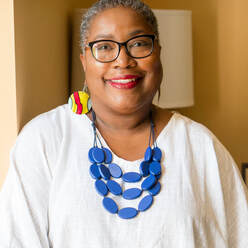
Presentation sponsored by TCU Starpoint School. Dr. Washington directs the Learning Disabilities Research Innovation Hub funded by the National Institutes of Health, Eunice Kennedy Shriver National Institute on Child Health and Human Development. She is also director of the Dialect, Poverty and Academic Success Lab at UCI. Currently, Dr. Washington’s research is focused on the intersection of literacy, language variation, and poverty. In particular, her work focuses on understanding the role of cultural dialect in assessment, identification of reading disabilities in school-aged African American children and on disentangling the relationship between language production and comprehension on development of reading and early language skills for children growing up in poverty. |
| 1205 | Navigating nonfiction/informational text: Supporting students' comprehension and addressing
standards Children's Literature Jennifer Smith Join us in this session as we explore methods to support students' comprehension and application of nonfiction/informational text. We will focus on the standards for ELA such as central idea, supporting evidence, and using graphics to gain information. Participants will also learn about recent award-winning nonfiction literature that can be used to supplement content area TEKS and inspire literacy through an interdisciplinary approach. |
| 1208 |
Using Data Literacy with Students In this session, we'll explore different ways to help students engage with their own data, matching practices to real goals like improvement, motivation, or self-regulation. We'll also discuss how to keep students' confidence and agency front and center, regardless of which approach you take to student-involved data use. Key topics will include incorporating student voice, balancing data use with the many
other tasks teachers juggle, and ensuring your practices fit into your existing routines. |
| 1217 | The Joy of Promoting Literacy While Honoring Social Studies Audience: Elementary FWISD: HQIM Rafael Blanco Join us for an engaging and interactive professional development session. This hands-on workshop will bring joy to teachers by enhancing their literacy skills and using social studies content to create digital assignments through myON. (Please bring your electronic devices) |
| 1307 | Embracing Justice and Joy: Cultivating the Writer's Voice Audience: Elementary & Secondary FWISD: HQIM Airam Ruiz This session elevates the role of writing as an equalizer of ideas and perspectives that uphold our participation in society. Attendees will examine research-based resources that serve as a platform to design academic, goal-driven writing lessons while empowering every scholar's voice. |
| 1308 | Launch into Literacy: Exploring Justice and Joy Through Rocket Science Audience:
Elementary & Secondary FWISD: HQIM Rocco Williams What do rockets, reading, and re-entry have in common? Join us as we explore how the awe-inspiring phenomenon of a SpaceX rocket landing back on Earth can ignite both scientific wonder and literacy-rich instruction in the classroom. In this interactive session, educators will learn how to integrate reading, writing, and critical thinking strategies into their science lessons-anchored in real-world phenomena. Participants will engage with texts, video clips, and discourse routines that promote equity, access, and joy for all learners. |
| Room | Session Details |
| 1205 |
Feature Session | Dr. Julie Ann Washington - Separating Opportunity from Ability: The intersection of language, literacy and poverty. 
Presentation sponsored by TCU Starpoint School. Dr. Washington directs the Learning Disabilities Research Innovation Hub funded by the National Institutes of Health, Eunice Kennedy Shriver National Institute on Child Health and Human Development. She is also director of the Dialect, Poverty and Academic Success Lab at UCI. Currently, Dr. Washington’s research is focused on the intersection of literacy, language variation, and poverty. In particular, her work focuses on understanding the role of cultural dialect in assessment, identification of reading disabilities in school-aged African American children and on disentangling the relationship between language production and comprehension on development of reading and early language skills for children growing up in poverty.
|
| 1208 |
Using Data with Students: Helping Students Own Their Literacy Journey We'll also discuss how to keep students' confidence and agency front and center, regardless
of which approach you take to student-involved data use. |
| 1217 |
Selecting and using children's literature: Resources for the busy teacher This session will focus on providing resources for teachers to address these questions,
notable award lists; student choice book awards; cross-curricular activities; and
online sites with author videos, discussion questions, and engagement ideas. |
| 1308 | Teachers as Decision-Makers: Using lesson internalization to make instructional decisions - Cancelled Science of Reading Robin Griffith Teachers make thousands of instructional decisions every day. Do you ever wonder if you are making the most effective ones? In this session, we will explore a framework to guide your teaching decisions in literacy. We will practice lesson internalization using the Amplify curriculum. |
| 2203 | Fast, Efficient, Smart‚ and Slightly Misguided: AI as an Instructional Assistant in
the Literacy Classroom AI & Reading Curby Alexander Artificial intelligence is fast, efficient, smart, and yes, sometimes slightly misguided. In this beginner-friendly session, we'll address the common forms of AI, demystify how they work, and explore their role as instructional assistants in the literacy classroom. Participants will be introduced to practical frameworks for analyzing AI-generated content and learn how to craft effective prompts that make these tools more useful and aligned with their instructional goals. We'll also explore applications of AI-powered tools, including creating leveled texts, offering personalized writing support, and developing engaging instructional materials. This session will discuss the affordances and the limitations of using AI-generated content, equipping educators with the insight and strategies they need to use these tools thoughtfully, creatively, and ethically. |
| 2506 | Empowering Learner Voices: Facilitating Academic Oral Language Development in Every
Lesson Audience: Elementary & Dual Language FWISD: Reading Academy Juanita Esparza & Rose Moreno Strong oral language skills are the foundation of literacy and academic achievement, yet they are often overlooked in daily instruction. This dynamic one-hour session explores how educators can intentionally foster oral language development within the Gradual Release of Responsibility (GRR) framework‚ I Do, We Do, You Do. Participants will learn practical strategies for embedding structured speaking and listening opportunities throughout each phase of the model, from teacher modeling to collaborative practice and independent application. |
| Room | Session Details |
| 1205 | The Power of Words: Building a Brighter Future for All with Joyful Vocabulary Experiences
Audience: Early Childhood FWISD: Early Childood Kristelle Delgado Kimberly Holland This session will provide early learning educators strategies for closing the word gap with intentionality. Participants will be introduced to the three types of vocabulary to teach, strategies to build students' word banks, and practice extending students' vocabulary through conversations. |
| 1217 |
Teachers as Decision-Makers: Using lesson internalization to make instructional decisions - Cancelled In this session, we will explore a framework to guide your teaching decisions in literacy. We will practice lesson internalization using the Amplify curriculum. |
| 1308 |
Rooted in Reading: Research-Based Instructional Strategies (RBIS) That Bridge Math
and Literacy Through interactive examples and literary connections, attendees will discover how to honor both the precision of mathematics and the depth of language, making math more accessible and meaningful for all learners. |
| 1309 |
Adopting A Culturally Informed Approach to Reading Comprehension Educators will explore how cultural and linguistic identities shape comprehension, and how to use inclusive strategies and diverse texts to foster engagement, equity, and deeper understanding for all students. |
| 2203 |
Communicating With Families About Student Literacy Programming: Navigating Challenging
Interactions Part 2 Participants will explore how specific emotions arise based on how a situation is interpreted (e.g., whether they feel in control, how much effort is required, or who is responsible). These patterns help explain why some interactions feel more emotionally difficult than others. The session also introduces eight evidence-based coping strategies and guides participants in reflecting on their own habits and tendencies. Whether or not you attended Part 1, you'll leave with new tools for building trust and communicating more effectively with families when conversations get tough. |